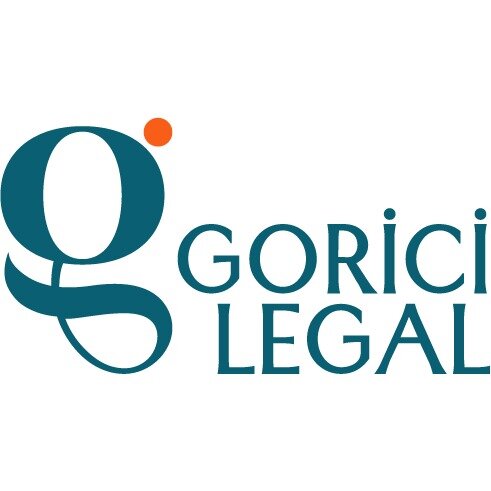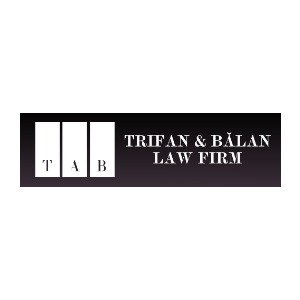Best Employment & Labor Lawyers in Romania
Share your needs with us, get contacted by law firms.
Free. Takes 2 min.
Or refine your search by selecting a city:
List of the best lawyers in Romania
About Employment & Labor Law in Romania
Employment & labor law in Romania governs the relationship between employers and employees, ensuring rights and responsibilities are clearly defined and enforced. The legal framework includes various regulations that cover contracts, working hours, wages, health and safety, non-discrimination, and termination of employment. These regulations aim to create a balanced and fair working environment for all parties involved and are primarily encapsulated in the Romanian Labor Code. Additionally, Romania is a member of the European Union, which means it aligns its employment practices with EU labor standards.
Why You May Need a Lawyer
There are various scenarios where you may require legal assistance in employment & labor matters in Romania. Common situations include disputes over employment contracts, workplace discrimination or harassment, unfair dismissal claims, wage disputes, or navigating complex regulations regarding employee benefits. Employers may also seek legal guidance for drafting legal documents, ensuring compliance with labor laws, or handling negotiations with unions.
Local Laws Overview
Romanian labor laws are structured to protect employee rights while also defining employer obligations. Key aspects include:
- Employment Contracts: Contracts can be individual or collective, with specific provisions enforced by the Romanian Labor Code.
- Working Hours: The standard workweek is 40 hours, with overtime regulated and compensated in accordance with the law.
- Leave Entitlements: Employees are entitled to annual leave, as well as paid leave for specific events such as family emergencies or health issues.
- Health and Safety: Employers are obligated to provide a safe working environment and adhere to specific health regulations.
- Non-Discrimination: Laws prohibit discrimination based on gender, age, disability, ethnicity, or other personal characteristics.
- Termination: There are strict regulations on terminating employment, including notice periods, severance pay, and legitimate grounds for dismissal.
Frequently Asked Questions
What is the standard probation period for a new employee in Romania?
The probation period is typically three months for most roles and can extend up to six months for management positions.
Are employment contracts mandatory in Romania?
Yes, written employment contracts are mandatory and must include specific terms such as job description, salary, and working hours.
How is overtime compensated in Romania?
Overtime work is compensated with additional time off or a pay rate typically 75% higher than regular pay.
Can an employer reduce an employee's salary unilaterally?
No, any changes to the salary must be mutually agreed upon and formally documented.
What protections exist against workplace discrimination?
Laws prohibit discrimination, and employees can file complaints with the National Council for Combating Discrimination if they experience unfair treatment.
What are an employee’s rights in case of wrongful dismissal?
An employee can contest a dismissal by filing a complaint with the labor courts to seek reinstatement or compensation.
What are the rules around data protection for employees in Romania?
Employers must comply with GDPR regulations, protecting personal data and privacy for employees.
Are there specific laws for remote work in Romania?
Yes, teleworking is governed by specific legal provisions that outline the rights and obligations of both employers and remote employees.
How much maternity leave is an employee entitled to?
Romanian law grants maternity leave of 126 days, which can be divided between pre- and post-birth periods.
Are strikes legal in Romania?
Yes, strikes are legal but must follow regulations such as prior notification and attempts to mediate disputes before taking actions.
Additional Resources
Several resources can assist individuals in need of employment & labor law advice in Romania:
- Ministry of Labor and Social Protection: Offers guidance on labor laws and regulations.
- National Agency for Employment (ANOFM): Provides services for job seekers and employers.
- Trade Unions: Can offer support and representation to employees in various industries.
- Legal Aid: Various non-profit organizations offer legal aid and advice to individuals facing employment issues.
Next Steps
If you need legal assistance regarding employment & labor issues in Romania, consider the following steps:
- Identify the Nature of Your Issue: Understand the specifics of your situation and gather any relevant documentation.
- Consult with a Lawyer: Seek a lawyer specializing in labor law to provide expert advice and representation.
- Contact Relevant Authorities: Sometimes filing a complaint with the appropriate agency may resolve your issue.
- Review Your Options: Discuss potential solutions with your lawyer, which may include mediation, negotiation, or litigation.
Lawzana helps you find the best lawyers and law firms in Romania through a curated and pre-screened list of qualified legal professionals. Our platform offers rankings and detailed profiles of attorneys and law firms, allowing you to compare based on practice areas, including Employment & Labor, experience, and client feedback.
Each profile includes a description of the firm's areas of practice, client reviews, team members and partners, year of establishment, spoken languages, office locations, contact information, social media presence, and any published articles or resources. Most firms on our platform speak English and are experienced in both local and international legal matters.
Get a quote from top-rated law firms in Romania — quickly, securely, and without unnecessary hassle.
Disclaimer:
The information provided on this page is for general informational purposes only and does not constitute legal advice. While we strive to ensure the accuracy and relevance of the content, legal information may change over time, and interpretations of the law can vary. You should always consult with a qualified legal professional for advice specific to your situation.
We disclaim all liability for actions taken or not taken based on the content of this page. If you believe any information is incorrect or outdated, please contact us, and we will review and update it where appropriate.
Browse employment & labor law firms by service in Romania
Romania Attorneys in related practice areas.
Browse employment & labor law firms by city in Romania
Refine your search by selecting a city.

















